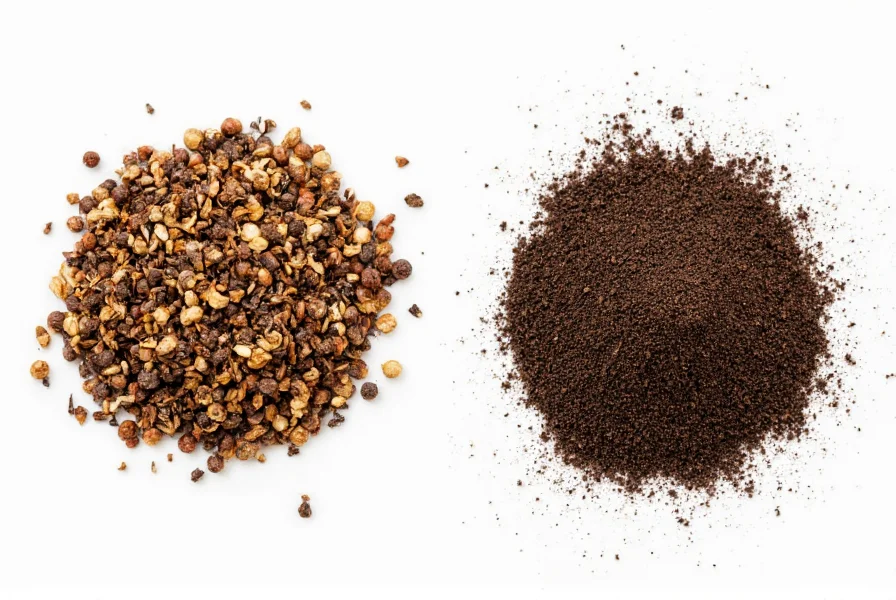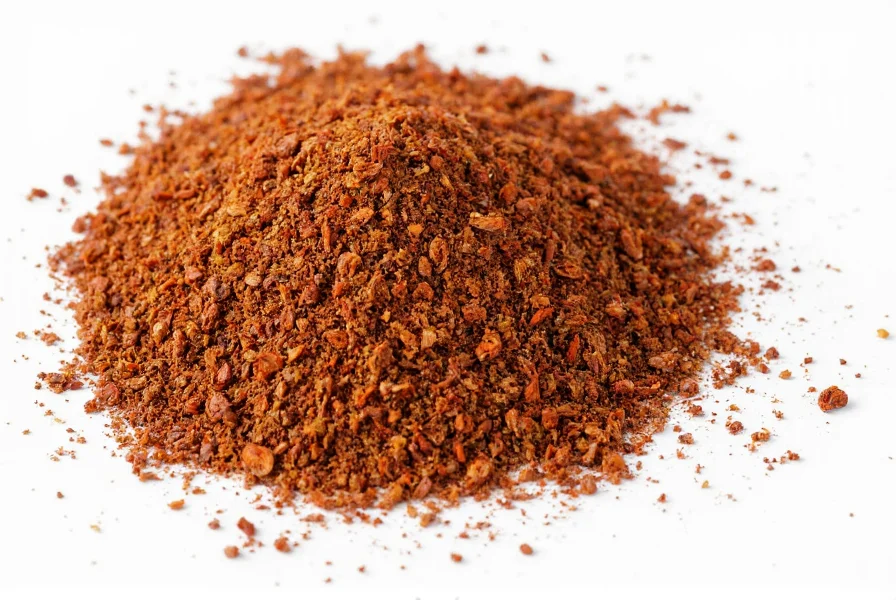Understanding the unique properties of crushed pepper flakes transforms how you approach seasoning in the kitchen. These coarse pepper fragments bridge the gap between subtle ground pepper and fiery red pepper flakes, delivering a distinctive culinary experience that elevates dishes through both flavor and texture.
What Exactly Are Crushed Pepper Flakes?
Crushed pepper flakes consist of coarsely broken black peppercorns, typically ranging from 1-3 millimeters in size. The crushing process preserves more of the peppercorn's essential oils compared to fine grinding, resulting in a more complex flavor profile with pronounced heat notes. Unlike pre-ground pepper that quickly loses potency, the larger surface area of crushed flakes maintains freshness longer while still providing immediate flavor impact when added to dishes.
Professional chefs prefer crushed pepper flakes for applications where texture matters—think artisanal pizzas, gourmet pastas, or premium grilled steaks. The visible black specks enhance visual appeal while delivering intermittent bursts of heat that ground pepper cannot replicate. This difference between crushed pepper flakes and ground pepper makes them indispensable for certain culinary applications.

Crushed Pepper Flakes vs. Similar Seasonings
Many home cooks confuse crushed pepper flakes with other pepper products. Understanding these distinctions ensures proper usage in recipes:
| Product | Texture | Heat Level | Best Culinary Uses |
|---|---|---|---|
| Crushed Pepper Flakes | Coarse fragments (1-3mm) | Moderate to high | Finishing dishes, pizza, pasta, grilled meats |
| Ground Black Pepper | Fine powder | Mild to moderate | General seasoning, sauces, baking |
| Red Pepper Flakes | Small, irregular shards | High (varies by chili) | Italian dishes, spicy oils, chili recipes |
| Coarse Ground Pepper | Uniform granules | Moderate | Pepper mills, steak seasoning |
The critical difference between crushed pepper flakes and red pepper flakes lies in their botanical origin—black pepper versus chili peppers—resulting in completely different flavor profiles. While red pepper flakes deliver straightforward heat, crushed black pepper offers complex notes of pine, citrus, and floral undertones alongside its pungency.
Optimal Culinary Applications
Knowing how to use crushed pepper flakes properly maximizes their impact in dishes. Their coarse texture means they work best when added at specific stages of cooking:
- Finishing applications: Sprinkle over finished pizzas, pastas, or roasted vegetables where texture enhances the eating experience
- Dry rubs: Combine with salt and other spices for steak or chicken rubs that provide textural contrast
- Infused oils: Steep in olive oil for 24-48 hours to create flavorful finishing oils
- Marinades: Add to meat marinades where the coarse texture helps penetrate surfaces
For the most vibrant flavor, add crushed pepper flakes during the last 5-10 minutes of cooking. Extended heat exposure diminishes their complex flavor compounds, leaving only basic pungency. When substituting in recipes calling for ground pepper, use about 25% less crushed flakes due to their more concentrated flavor.

Storage and Shelf Life Considerations
Proper storage significantly extends the shelf life of crushed pepper flakes. Exposure to light, heat, and moisture rapidly degrades their volatile flavor compounds. Follow these storage tips for maximum freshness:
- Store in an airtight container away from direct light
- Keep in a cool, dark cupboard (not above the stove)
- Never store in the refrigerator where moisture causes clumping
- Buy in small quantities from high-turnover retailers
Well-stored crushed pepper flakes maintain optimal flavor for 12-24 months. Signs they've degraded include diminished aroma, faded color, and loss of pungency. Unlike ground pepper that becomes completely inert, degraded crushed flakes may still provide heat but lose their nuanced flavor profile—a key consideration when selecting ingredients for gourmet dishes.
Creative Uses Beyond Basic Seasoning
Expand your culinary repertoire with these innovative applications of crushed pepper flakes:
- Peppercorn crust: Press onto tuna or beef tenderloin before searing
- Compound butter: Blend with softened butter and herbs for steak topping
- Homemade spice blends: Combine with smoked paprika and garlic powder
- Cocktail rim: Mix with salt for Bloody Mary or Michelada glasses
- Infused honey: Steep in warm honey for spicy-sweet glazes
When experimenting with crushed pepper flakes substitutes, remember that coarsely ground pepper provides similar texture but milder heat, while red pepper flakes deliver different flavor notes. For recipes specifically calling for crushed black pepper, these substitutions alter the dish's character significantly.
Frequently Asked Questions
Can I substitute crushed pepper flakes for ground pepper in recipes?
Yes, but use approximately 25% less crushed flakes than ground pepper due to their more concentrated flavor. For even distribution in baked goods or smooth sauces, crushed flakes aren't ideal substitutes as they'll create noticeable texture.
Why do crushed pepper flakes provide more complex flavor than ground pepper?
The crushing process preserves more essential oils and volatile compounds compared to fine grinding. These compounds create nuanced flavor notes of pine, citrus, and floral undertones that dissipate quickly in finely ground pepper.
How can I tell if my crushed pepper flakes have gone bad?
Fresh crushed pepper should have a strong, complex aroma and vibrant black color. If it smells musty, shows faded color, or lacks pungency when tasted, it's lost its optimal flavor profile. Unlike spoiled food, degraded pepper isn't dangerous—just less flavorful.
Are crushed pepper flakes the same as red pepper flakes?
No, they're completely different. Crushed pepper flakes come from black peppercorns (Piper nigrum) and provide complex heat with floral notes. Red pepper flakes come from dried chili peppers and deliver straightforward capsaicin heat without black pepper's nuanced flavor profile.











 浙公网安备
33010002000092号
浙公网安备
33010002000092号 浙B2-20120091-4
浙B2-20120091-4